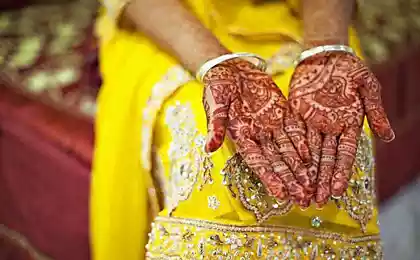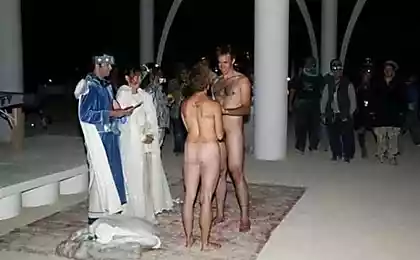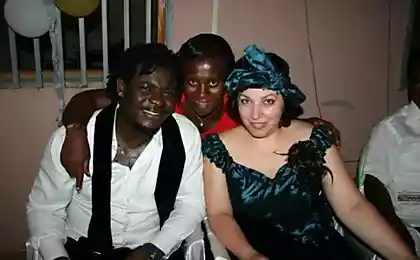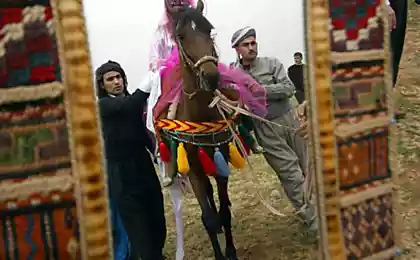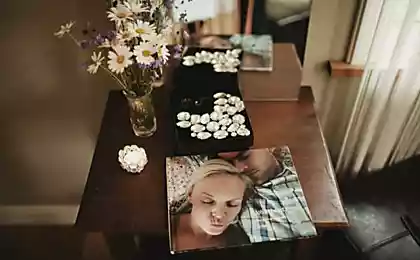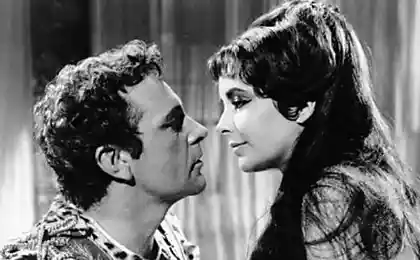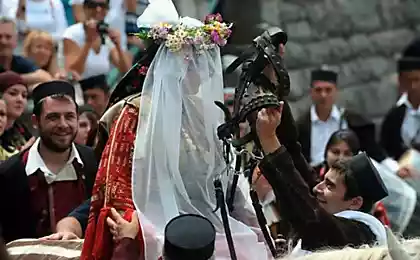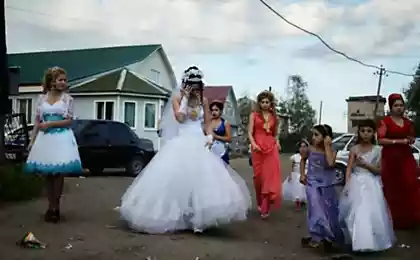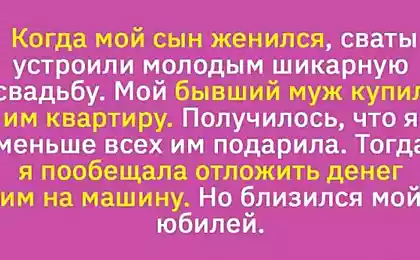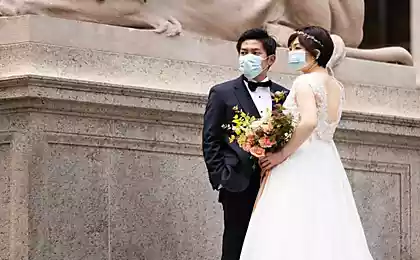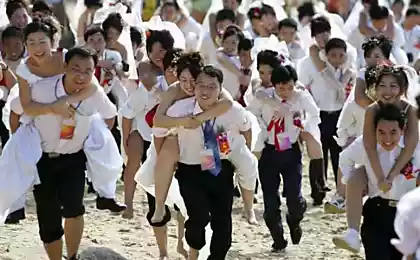1138
Traditional Wedding
A woman named Fatma Inusa from Bulgaria was followed by centuries-old traditions of his village and was on the marriage ceremony according to the customs of his people: with his eyes closed, the decorated face paint in bright dress with sequins and with a wreath of paper flowers on the head. The tradition to paint and decorate the face of a white sequined -Unique tradition of remote Bulgarian village Rybnovo.
The village is located in a mountainous area in the south-western Bulgaria. This event is so important for local residents, even Bulgarian men working abroad come to see him.
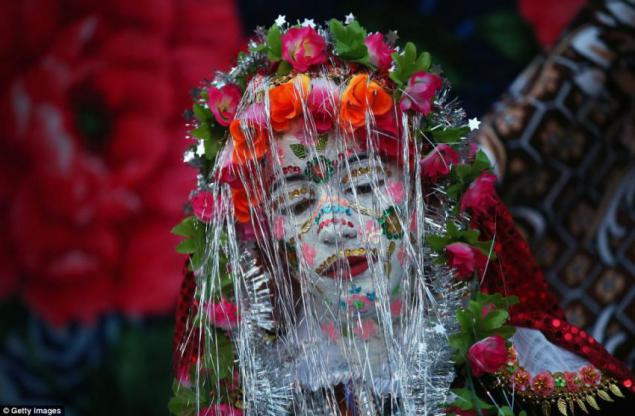
For the people of Rybnovo their religion is more important than nationality. And they identify themselves not only with a certain ethnic group, as representatives of their religion. In the village of 10 priests and 2 Temple 3,500 inhabitants.
The family of the bride accumulate a dowry from the birthday girl. Most of the dowry is knitting handmade quilts, books, socks and carpets. In the morning before the wedding, the family installed a wooden platform 50 meters in length and 3 meters in height and hang it on the dowry
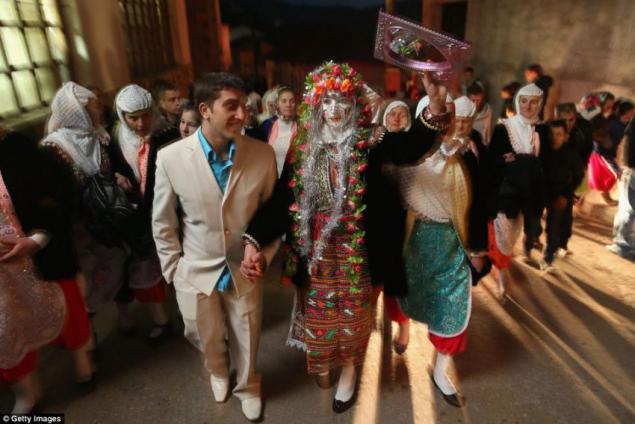
Almost all villagers come to see the bride's dowry, small courtyards during the wedding turned into a kind of showrooms.
Then the bride and groom perform a traditional dance on the central square, joined by most of the young villagers.
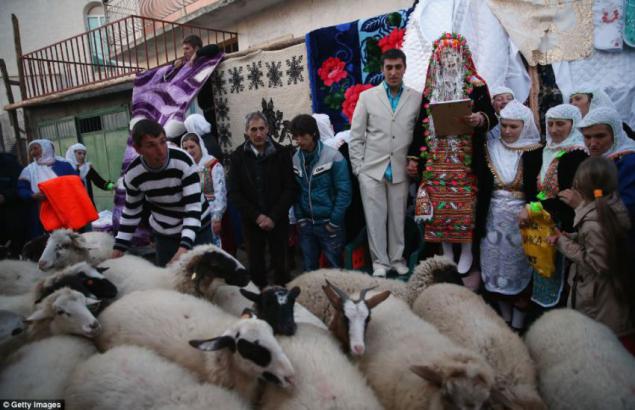
But the most important part obryada- prettification face nevesty- held on the second day after the wedding. Relatives of the bride covers her face with a thick layer of white paint and decorate it with colored sequins.
At the head of the bride wears a long red veil.
At the wedding, no one drinks alcohol, and sex before marriage is taboo.
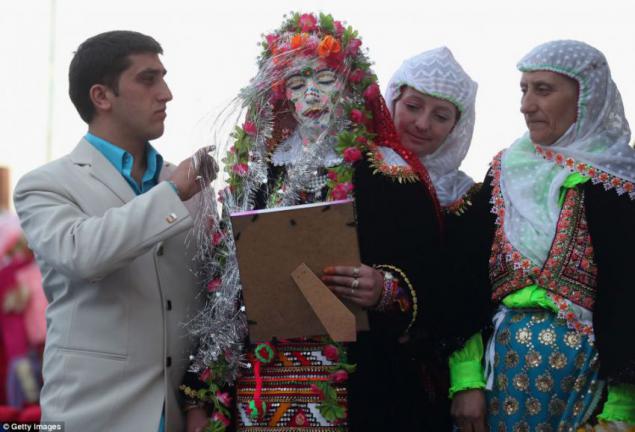
The groom, the bride's mother and her grandmother are the bride, dressed in a bright corset and baggy pants, to the waiting guests.
The bride is forbidden to open his eyes as long as the priest bless the young couple.
It is difficult to say exactly when did this tradition.
Villagers face greater difficulties than the majority of Muslims in Bulgaria.
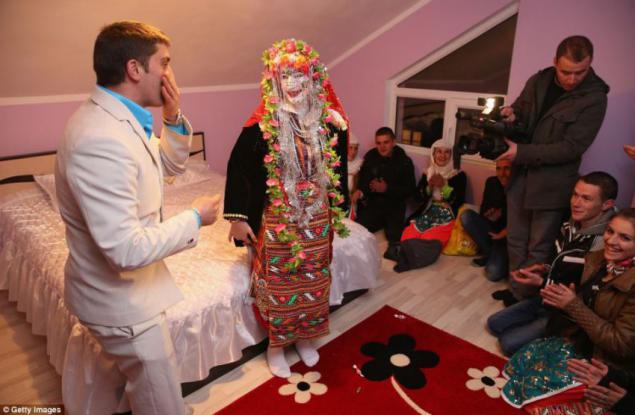
"In 1960, the banned Islamic music at weddings, then, traditional costumes, and in the 1980s were banned all traditional wedding ceremonies," says Mayor Ahmed Bashev born in Rybnovo.
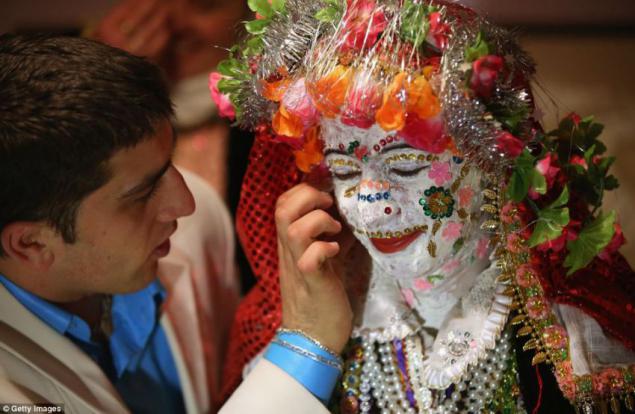
The villagers earn their living from agriculture, but a low level of income in the poorest country in the EU makes men look for work in cities in Bulgaria or in western Europe, and not least in order to make the wedding. The men from the settlement rarely marry somebody other than inmates Rybnovo.
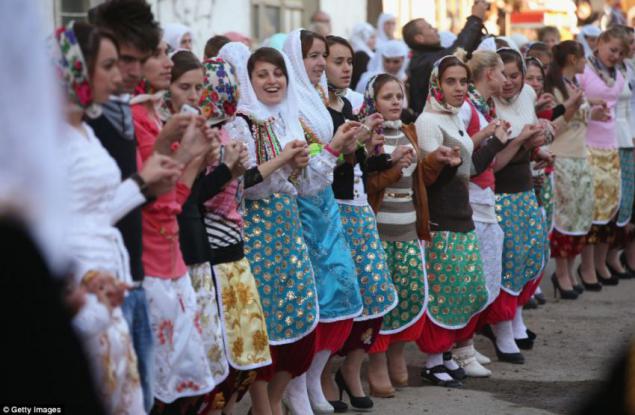
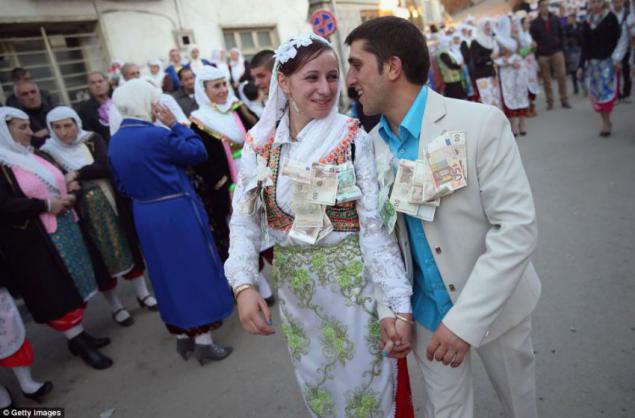
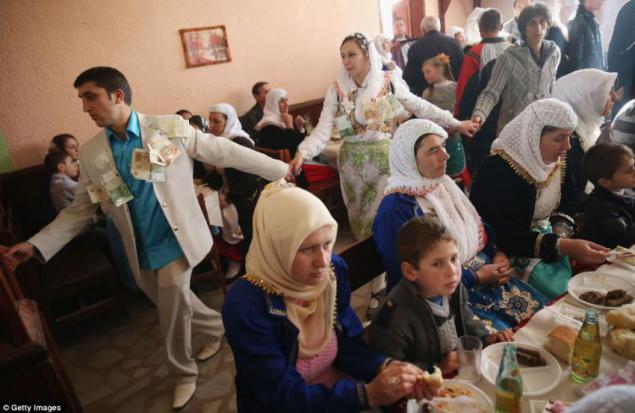
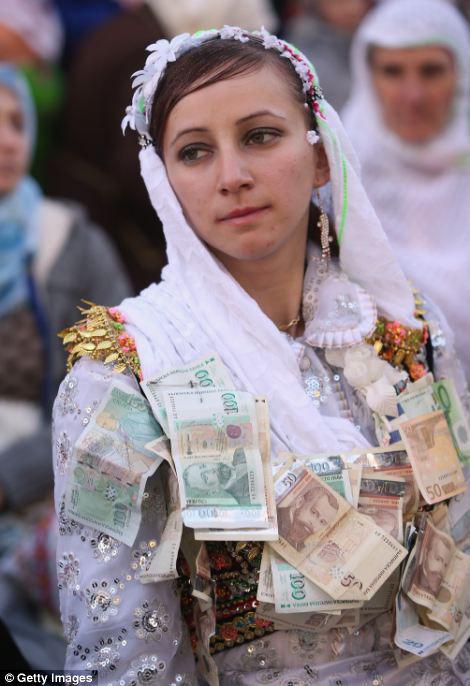
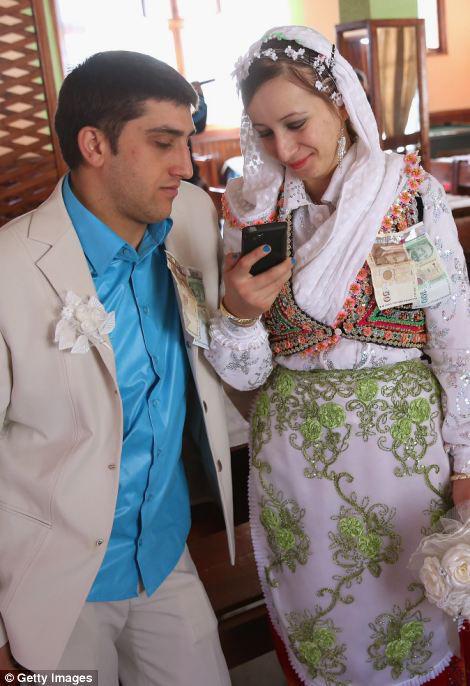
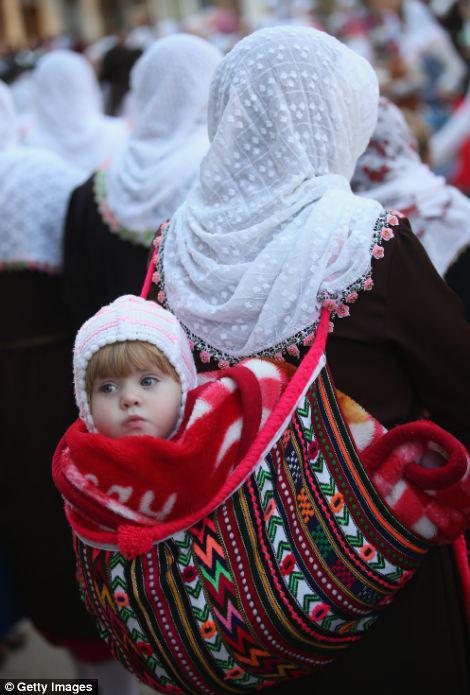
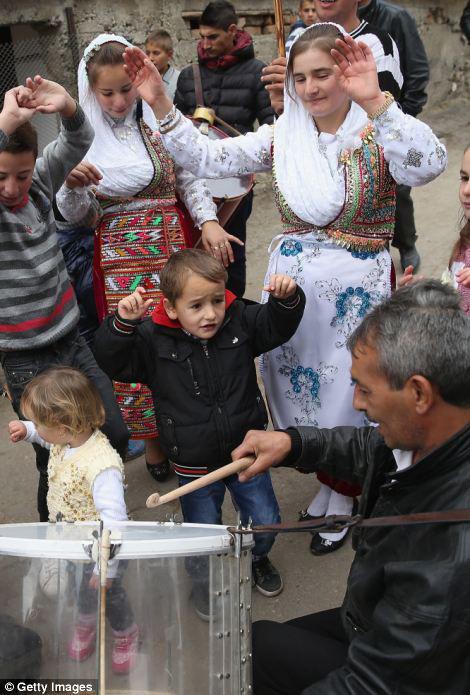
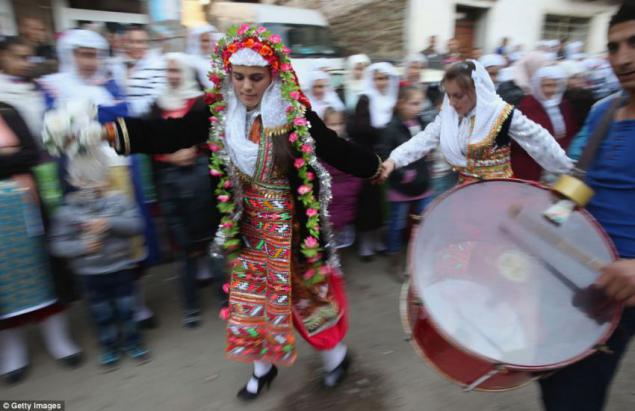
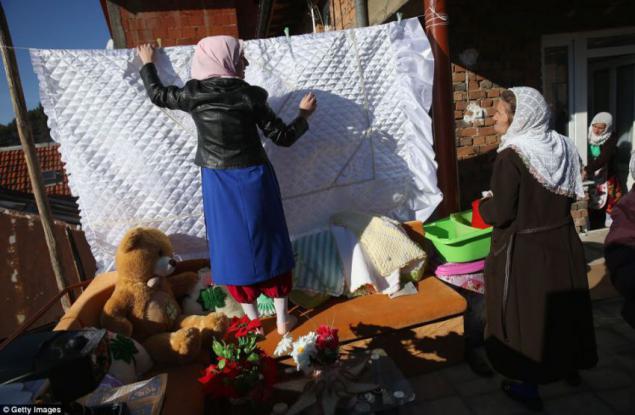
Translated specifically for fishki.net
--img16--
Source: www.dailymail.co.uk
The village is located in a mountainous area in the south-western Bulgaria. This event is so important for local residents, even Bulgarian men working abroad come to see him.

For the people of Rybnovo their religion is more important than nationality. And they identify themselves not only with a certain ethnic group, as representatives of their religion. In the village of 10 priests and 2 Temple 3,500 inhabitants.
The family of the bride accumulate a dowry from the birthday girl. Most of the dowry is knitting handmade quilts, books, socks and carpets. In the morning before the wedding, the family installed a wooden platform 50 meters in length and 3 meters in height and hang it on the dowry

Almost all villagers come to see the bride's dowry, small courtyards during the wedding turned into a kind of showrooms.
Then the bride and groom perform a traditional dance on the central square, joined by most of the young villagers.

But the most important part obryada- prettification face nevesty- held on the second day after the wedding. Relatives of the bride covers her face with a thick layer of white paint and decorate it with colored sequins.
At the head of the bride wears a long red veil.
At the wedding, no one drinks alcohol, and sex before marriage is taboo.

The groom, the bride's mother and her grandmother are the bride, dressed in a bright corset and baggy pants, to the waiting guests.
The bride is forbidden to open his eyes as long as the priest bless the young couple.
It is difficult to say exactly when did this tradition.
Villagers face greater difficulties than the majority of Muslims in Bulgaria.

"In 1960, the banned Islamic music at weddings, then, traditional costumes, and in the 1980s were banned all traditional wedding ceremonies," says Mayor Ahmed Bashev born in Rybnovo.

The villagers earn their living from agriculture, but a low level of income in the poorest country in the EU makes men look for work in cities in Bulgaria or in western Europe, and not least in order to make the wedding. The men from the settlement rarely marry somebody other than inmates Rybnovo.









Translated specifically for fishki.net
--img16--
Source: www.dailymail.co.uk

